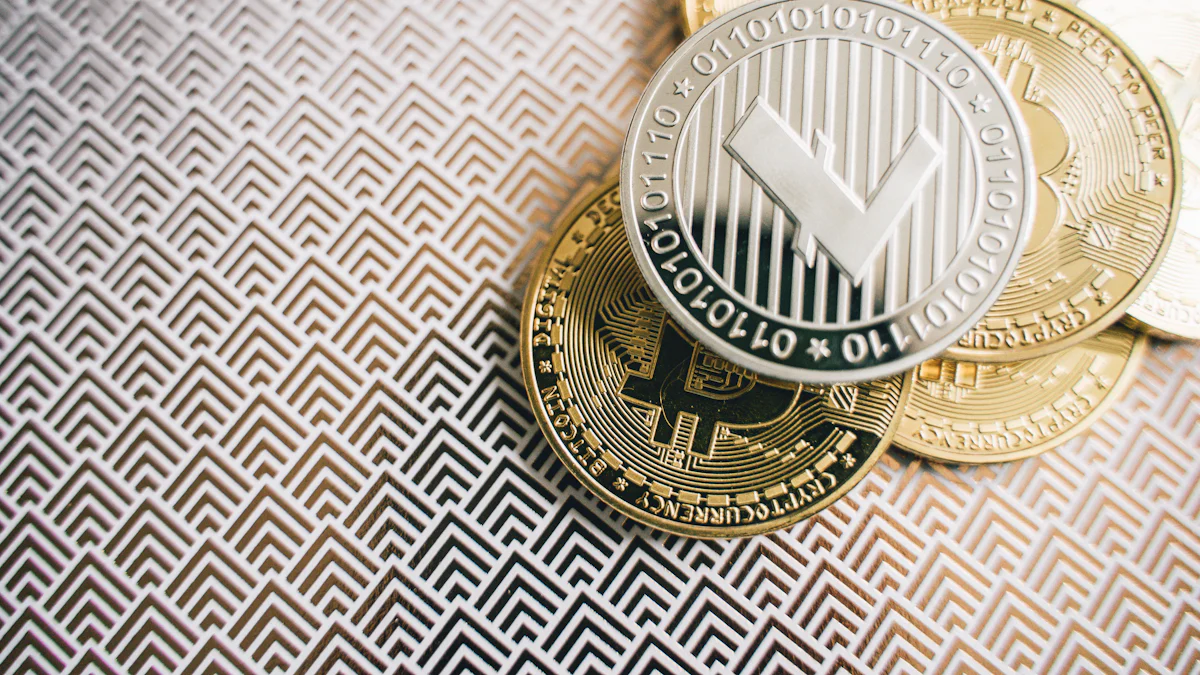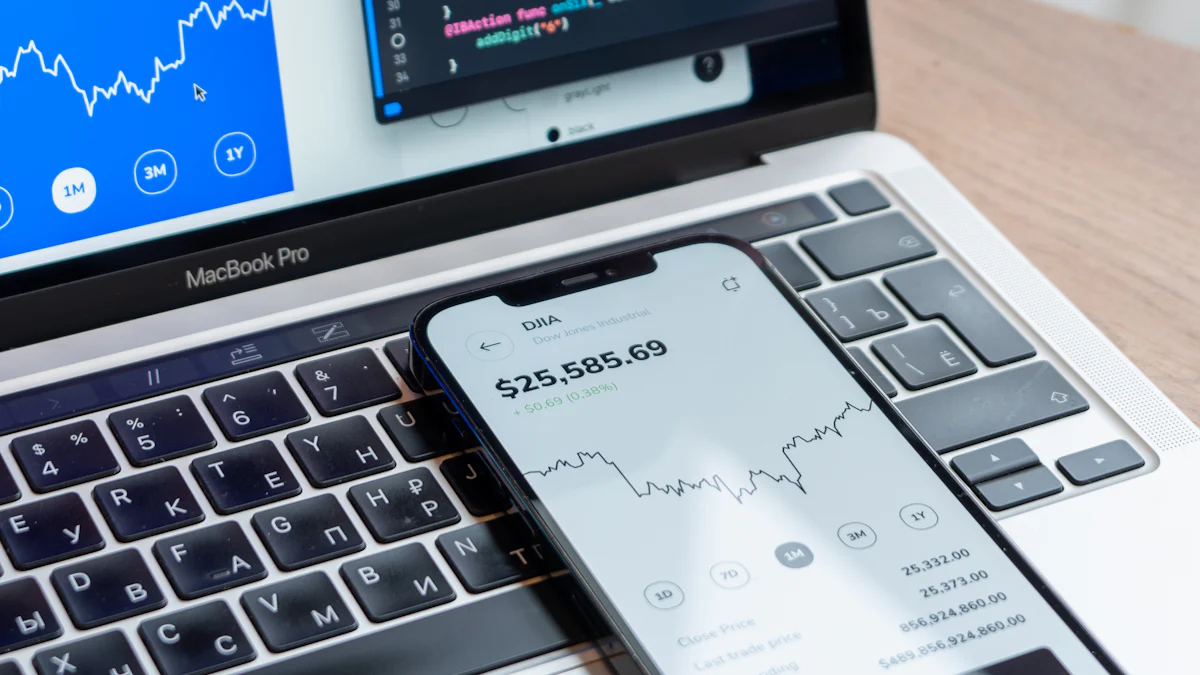Understanding Crypto Whitelisting

Crypto whitelisting acts as a pre-approval process that lets you participate in blockchain activities with confidence. By getting on a whitelist, you gain access to exclusive opportunities and enhance your security. This process curates legitimate tokens, reducing the risk of scams and ensuring only verified participants engage in events. For instance, Ethereum's ICO in 2014 used whitelisting to build a strong community and comply with regulations. Whitelisting not only boosts security but also offers you a chance to secure tokens at lower prices before public sales, making it a valuable strategy for investors.
What is Crypto Whitelisting?
Definition and Overview
Crypto whitelisting acts as a gatekeeper in the world of blockchain. It involves creating a list of approved wallet addresses or users who can participate in specific crypto activities. Think of it as a VIP list for blockchain events. When you get on a whitelist, you gain access to exclusive opportunities, like participating in an Initial Coin Offering (ICO) or buying Non-Fungible Tokens (NFTs) before they hit the public market.
Expert Testimony:
Various Experts in cryptocurrency and blockchain emphasize that whitelisting plays a crucial role in enhancing security and compliance. It ensures that only certain entities gain special access, boosting the integrity of blockchain initiatives.
Importance in the Crypto Ecosystem
Whitelisting holds significant importance in the crypto ecosystem. It serves as a security measure, ensuring that only verified participants engage in transactions. This process reduces the risk of scams and fraudulent activities. By restricting access to pre-approved addresses, whitelisting helps maintain the integrity of blockchain projects.
Moreover, being on a crypto whitelist can offer you a strategic advantage. You might secure tokens at lower prices during presales, which can be a lucrative opportunity for investors. However, getting on a whitelist requires effort and commitment. You may need to meet specific criteria, such as having a referral code or meeting a minimum investment threshold.
Expert Testimony:
Various Experts highlight that while whitelisting provides opportunities, it also presents challenges. It's crucial to do your research and understand the risks involved. This understanding helps create safer environments for cryptocurrency transactions.
How Crypto Whitelisting Works

Understanding how crypto whitelisting functions can give you a significant edge in the blockchain world. This process involves several steps that ensure only verified participants gain access to specific crypto activities. Let's break it down.
The Whitelisting Process
The whitelisting process begins with identifying the event or activity you want to participate in, such as an ICO or NFT sale. You then submit your details for verification. This might include your wallet address, personal information, and sometimes even a referral code. Once you provide this information, the organizers review it to ensure you meet their criteria. If everything checks out, they add you to the whitelist, granting you access to the event.
This process not only secures your participation but also helps organizers maintain a safe environment. By pre-verifying users, they can prevent unauthorized access and reduce the risk of scams. Whitelisting acts as a gatekeeper, ensuring that only eligible participants can engage in these exclusive opportunities.
Criteria for Whitelisting
To get on a whitelist, you must meet specific criteria. These requirements vary depending on the event or platform but generally include identity verification and compliance with regulations.
Identity Verification
Identity verification is a crucial step in the whitelisting process. It involves confirming your identity through documents like a passport or driver's license. This step ensures that you are who you claim to be, adding a layer of security to the process. By verifying identities, platforms can prevent fraudulent activities and ensure that only legitimate participants gain access.
Compliance with Regulations
Compliance with regulations is another essential aspect of whitelisting. Many jurisdictions require platforms to adhere to AML (Anti-Money Laundering) and KYC (Know Your Customer) protocols. These regulations help prevent illegal activities and ensure that funds move only to verified wallets. By complying with these standards, platforms can operate legally and maintain the integrity of their projects.
Benefits of Crypto Whitelisting

Crypto whitelisting offers several advantages that can enhance your experience in the blockchain world. Let's explore these benefits and see how they can work for you.
Enhanced Security
Whitelisting significantly boosts security by allowing only approved addresses to participate in blockchain activities. This process acts as a barrier against unauthorized access, reducing the risk of hacking or phishing attempts. By ensuring that only trusted parties can engage in transactions, you can enjoy peace of mind knowing your assets are safer. Whitelisting also helps identify potential bad actors, preventing them from accessing sensitive data or engaging in illicit activities. While it doesn't guarantee complete protection from cyber threats, it adds a crucial layer of defense.
Access to Exclusive Opportunities
Getting on a crypto whitelist opens doors to exclusive opportunities. You might gain early access to mint NFTs or participate in Initial Coin Offerings (ICOs) before they become available to the general public. This early access often comes with perks like lower prices for cryptocurrencies or even free crypto airdrops. By being part of a whitelist, you position yourself strategically to take advantage of these unique opportunities, potentially increasing your investment returns.
Trust and Credibility
Whitelisting enhances trust and credibility within the crypto ecosystem. When you participate in whitelisted events, you know that the tokens or projects have undergone thorough evaluation. This assurance creates a healthier and more stable market, where you can invest with greater confidence. Exchanges and platforms that use whitelisting maintain a reputation for quality and safety, further boosting your trust in their offerings. By engaging in whitelisted activities, you contribute to a more secure and reliable blockchain environment.
Applications of Crypto Whitelisting
Crypto whitelisting plays a pivotal role in various blockchain activities. Let's explore how it applies to Initial Coin Offerings (ICOs), Non-Fungible Tokens (NFTs), and security and fraud prevention.
In Initial Coin Offerings (ICOs)
When you participate in an Initial Coin Offering, whitelisting ensures a fair and orderly distribution of tokens. By creating a list of authorized addresses, ICO organizers can manage who gets to purchase tokens. This process helps prevent fraud and ensures compliance with crypto regulations. You gain confidence knowing that the tokens you buy have undergone thorough vetting. Whitelisting in ICOs not only enhances security but also builds trust among prospective buyers. It acts as a gatekeeper, allowing only verified participants to engage in token sales.
In Non-Fungible Tokens (NFTs)
Whitelisting in NFTs grants you exclusive access to minting opportunities. NFT projects use this process to create a clean and healthy digital environment. By restricting access to approved participants, NFT whitelists prevent spam accounts and ensure that actual buyers can engage in minting. This approach enhances the credibility of NFT projects and provides you with a chance to secure unique digital assets before they hit the public market. Whitelisting in NFTs not only boosts security but also offers you a strategic advantage in acquiring valuable tokens.
In Security and Fraud Prevention
Whitelisting serves as a crucial security measure in the crypto world. By allowing only approved entities to participate in blockchain activities, it reduces the risk of unauthorized access and fraudulent transactions. Exchanges use whitelisting to vet tokens before they can be traded on their platforms. This process ensures trust and credibility, giving you confidence in the listed tokens. Whitelisting acts as a barrier against potential bad actors, safeguarding your assets and maintaining the integrity of blockchain projects.
How to Join a Crypto Whitelist
Getting onto a crypto whitelist can open doors to exclusive investment opportunities. If you're wondering how to get whitelisted, here's a step-by-step guide to help you navigate the process.
Step-by-Step Guide
Research and Identify Opportunities
Start by researching various crypto projects that offer whitelist opportunities. Look for projects that align with your interests and investment goals. You can find these opportunities on crypto forums, social media groups, and project websites. Pay attention to the project's credibility and potential for growth. Being well-informed about the project increases your chances of getting approved.
Diana Ambolis, a crypto expert, notes that whitelisting can enhance your earning potential by providing access to exclusive investment opportunities.
Complete Necessary Documentation
Once you've identified a promising project, you'll need to complete the necessary documentation. This often involves providing personal information and verifying your identity. Projects may require documents like a passport or driver's license to ensure you meet their requirements. Make sure to follow the instructions carefully and submit all required documents on time. Meeting these requirements is crucial for gaining approval.
Think of a whitelist as a VIP guest list at a high-profile event. Just like attendees must meet certain criteria to gain entry, you need to fulfill specific requirements to join a crypto whitelist.
Engage with the Community
Engaging with the project's community can significantly boost your chances of getting whitelisted. Participate in discussions on forums, attend webinars, and connect with project founders. Networking with key individuals can provide valuable insights and increase your visibility within the community. Holding significant amounts of tokens from previous projects might also improve your chances. Being proactive and well-connected can lead to successful participation in whitelist offerings.
Insight: Being proactive and well-informed can lead to successful participation in whitelist crypto offerings.
By following these steps, you can increase your chances of joining a crypto whitelist and accessing exclusive opportunities. Remember, each project may have different requirements, so always stay informed and prepared.
Common Risks and Challenges
Navigating the world of crypto whitelisting comes with its own set of risks and challenges. While whitelisting offers numerous benefits, you should remain aware of potential pitfalls to make informed decisions.
Potential for Scams
Even though whitelisting helps reduce scams by curating legitimate tokens, the crypto space still faces scam risks. Some projects might use whitelists as a facade to lure unsuspecting investors. You should always conduct thorough research before participating in any whitelist. Look for projects with transparent processes and reputable teams. According to Forbes Magazine (2021), whitelisting provides an extra layer of caution for investors by ensuring only vetted tokens appear on exchanges. However, staying vigilant remains crucial to avoid falling victim to fraudulent schemes.
Privacy Concerns
Whitelisting often requires you to provide personal information for identity verification. This step, while necessary for transaction security, raises privacy concerns. Sharing sensitive data like your passport or driver's license can make you vulnerable to data breaches. You should ensure that the platforms you engage with have robust security measures in place to protect your information. Always read the privacy policies and understand how your data will be used and stored. Balancing the need for security with privacy protection is essential in the crypto world.
Regulatory Challenges
Regulatory challenges present another hurdle in the whitelisting process. As governments worldwide tighten regulations on cryptocurrencies, compliance becomes increasingly important. Whitelists play a vital role in ensuring compliance by allowing only pre-approved addresses to transact. This measure reduces the risk of money laundering and other illicit activities. However, navigating these regulations can be complex. You should stay informed about the legal requirements in your jurisdiction and ensure that the projects you participate in adhere to these standards. Mosaic Alpha’s approach to whitelisting sets a benchmark for exchanges, emphasizing the importance of compliance and user protection.
By understanding these risks and challenges, you can better navigate the crypto landscape. Staying informed and cautious will help you make the most of the opportunities that whitelisting offers while minimizing potential downsides.
Understanding crypto whitelisting is crucial for navigating the blockchain world. It offers strategic benefits like enhanced security and access to exclusive opportunities. However, you must remain aware of potential risks, such as scams and privacy concerns. By staying informed and cautious, you can make the most of these opportunities while minimizing downsides. Whitelisting in crypto acts as a gatekeeper, ensuring only verified participants engage in activities. This process not only protects your investments but also contributes to a more secure and stable crypto ecosystem.
FAQ
What is whitelisting in crypto generally referred to?
Whitelisting in the crypto world typically refers to creating a list of authorized addresses or individuals allowed to participate in an Initial Coin Offering (ICO) or digital token sale. This process helps prevent fraud and ensures compliance with crypto regulations, making it a crucial component of secure blockchain activities.
Is whitelisting in crypto good or bad?
Whitelisting can be beneficial for traders. It allows you to purchase cryptocurrency at reduced prices and access unique project features. Additionally, being on a whitelist might lead to receiving free cryptocurrency giveaways. However, the selection process may not be inclusive, so it's essential to weigh the pros and cons before registering.
What are the key benefits of crypto whitelisting?
Crypto whitelisting offers several advantages. It grants priority access to ICOs, IEOs, or NFT distributions, which is especially valuable when token availability is limited. Moreover, using a whitelist for withdrawal addresses enhances transaction security by restricting withdrawals to pre-approved addresses.
What is the significance of whitelisting in the crypto world?
Whitelisting provides exclusive investment opportunities, potentially boosting your earning potential. In cryptocurrencies, whitelists restrict access to certain parties, ensuring that only verified participants engage in activities. This mechanism enhances the security and integrity of blockchain initiatives.
What does whitelisting in the crypto world offer?
Whitelisting in the crypto world presents both opportunities and challenges. It offers a chance to participate in potentially lucrative NFT projects. However, securing a spot on the list requires effort and commitment. As with any investment, conducting thorough research and understanding the risks involved is crucial.
What is the role of whitelisting in token sales?
Whitelisting plays a vital role in the token sale process. It benefits both project owners and participants by enhancing the sale's integrity, building a dedicated community, and contributing to the project's success. Whitelisting ensures compliance with regulatory requirements, prevents fraud, and creates an equitable environment for all interested parties.
What is the importance of whitelisting in cryptocurrency and DeFi?
In cryptocurrency and DeFi, whitelisting establishes a list of approved addresses. This enhances security and compliance in blockchain projects, ensuring that only certain entities gain special access. Whitelisting is essential for boosting the security and integrity of blockchain initiatives.
What advantage does being on the Whitelist provide for presales?
Being on the Whitelist for presales gives you early access to purchase tokens at lower prices, providing a competitive advantage. Overall, whitelisting enhances both security and opportunity for participants in the cryptocurrency space.
See Also
Essential Steps for Effective Influencer Whitelisting
Navigating Your Initial Sponsored Content Successfully
Harnessing the Power of Brand Advocates
